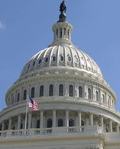
ASTMH continues to advocate before Congress and the Biden administration. Letters that ASTMH led or joined include:
- A letter urging Congress to provide $5 billion in emergency resources to address food insecurity and humanitarian crisis exacerbated by the conflict in Ukraine, and $5 billion for the global COVID response.
- A letter urging Congressional appropriators to provide at least $11 billion for CDC in the fiscal year (FY) 2023 Labor, Health and Human Services, Education and Related Agencies appropriations bills and, within the National Center for Emerging and Zoonotic Infectious Disease (NCEZID), at least $58.603 million in funding for Vector-Borne Diseases (VBD), including $16.5 million for Lyme disease and at least $50 million for the Epidemiology and Laboratory Capacity (ELC) grant program to support states’ work on VBD.
- A letter to Congress in support of a fund at USAID specifically for research and development.
Read More:
Supplemental funding for both domestic and global COVID-19 efforts is still stalled in Congress. Funding for Ukraine has overtaken the spotlight and while the Biden Administration tried to pair Ukraine and COVID funding together, Congressional Republicans refused to consider COVID-19 funding without amendments on immigration and a full accounting of previous COVID-19 funds. The Administration and Congressional leaders continue to discuss how and when to move a COVID-19 supplemental funding bill.
Biden Administration Leaders Testify on Capitol Hill About Budget Requests
In the last two weeks, many Biden Administration officials have testified on Capitol Hill regarding the fiscal year 2023 budget request for their respective agencies. There will be more hearings over the next two weeks. Most of the foreign policy hearings featuring Secretary of State Antony Blinken and others have focused on Ukraine and other threats, although some Members of Congress at the hearings did highlight the need for COVID-19 global funding. In the April 28, House Appropriations Committee State, Foreign Operations, and Related Programs Subcommittee hearing, Chair Barbara Lee (D-CA) in her opening statements asked for an update on COVID-19, including the development and distribution of vaccines. She said the U.S. response has been too slow and that additional funding is needed. Secretary Blinken in his opening remarks said additional resources are needed to strengthen global health security. In Rep. Lee’s first question, she asked about the Administration’s COVID-19 plans, and how lack of funding is impacting global vaccination efforts. In response, Secretary Blinken said they need to continue driving toward the 70 percent global vaccination goal by the fall. He said a major challenge has been last-mile delivery—including the need for cold-chain storage, healthcare workers to deliver vaccines, and ensuring distribution routes—and that money is running out.
Senate Confirms Dr. John Nkengasong as PEPFAR Coordinator
Last week, the Senate confirmed the nomination of John Nkengasong, MSc, PhD, Director of the Africa Centres for Disease Control and Prevention, to serve as the next head of the U.S. President’s Emergency Plan for AIDS Relief (PEPFAR). (Dr. Nkengasong spoke at the 2020 Annual Meeting about COVID-19 and Africa.)